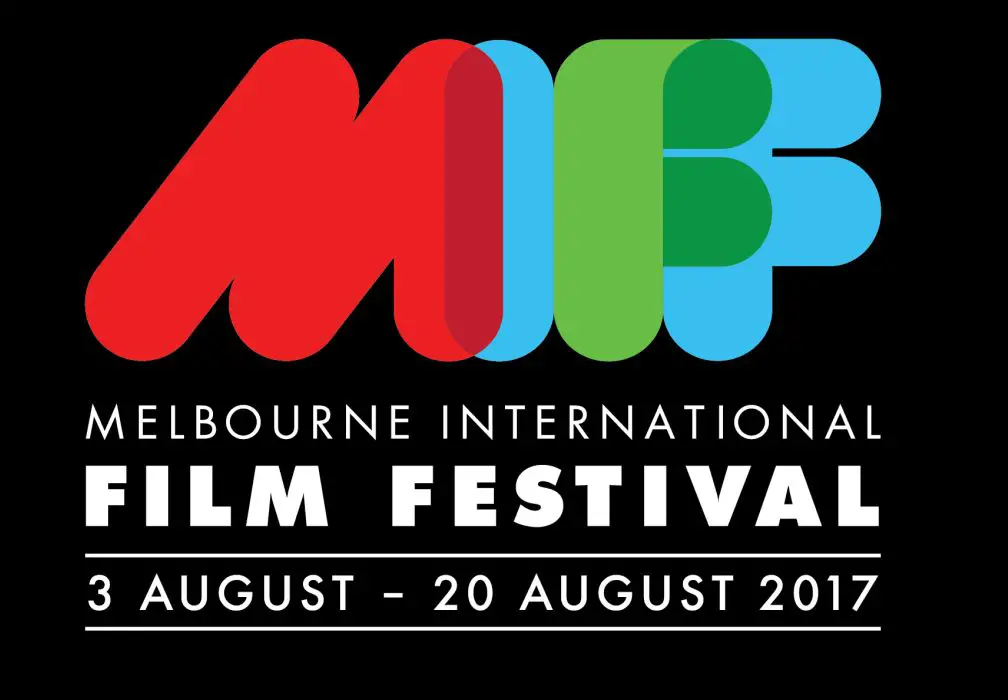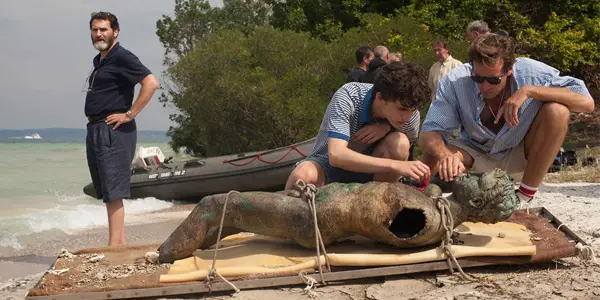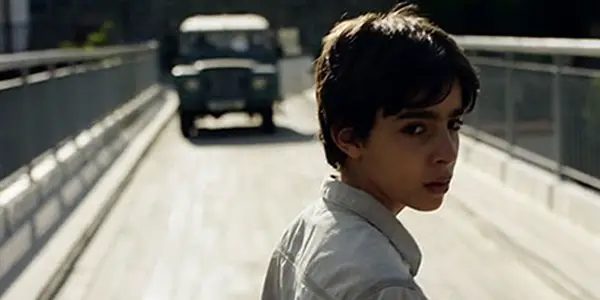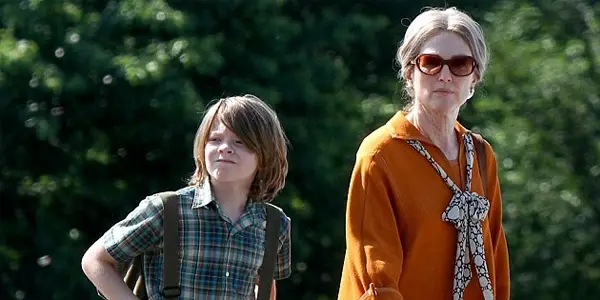Melbourne International Film Festival 2017 Report: Week One

Alex is a 28 year-old West Australian who has a…
Despite being in the same state that is the same home as two major Australian film festivals – Revelation Film Festival and Cinefest Oz, in my two years of being a movie critic, I’ve never properly attended a film festival before. I’ve gone to one-off screenings during these festival periods, but never dedicated a period of time to really dive into the festival atmosphere, days of multiple films with packed theatres, exclusive conferences and really engaging with the modern screen culture.
That changed this month as I decided to attend MIFF – Melbourne International Film Festival, one of Australia’s most important annual film events, a 17-day celebration of Australian and International Cinema. After the opening night gala that kicked off with a premiere of Greg MacLean’s Jungle (a film I haven’t managed to see yet), my week really began on Friday, so this report only really covers two days worth of films so far. Thankfully, my festival watching started with the great Call Me By Your Name.
Call Me By Your Name (Luca Guadagnino)

Emerging as one of the most critically acclaimed films of the year, and one of the definitive awards seasons favourite, Luca Guadagnino’s Call Me By Your Name is a film that totally deserves its glowing reputation it has gained. Adapted from André Aciman’s much beloved 2007 book, Call Me By Your Name succeeds due to its universal nature, the film genuinely welcomes audiences of all to not view the central queer romance as one for exclusively queer audiences, but as a bond based on true love and understanding, a connection that can be formed by all.
Set in the bright and sunny town of Lombardy, Italy, Call Me By Your Name kicks off with the arrival of Oliver (Armie Hammer), an American doctoral student who has been hired by Mr. Perlman (Michael Stuhlberg) for the summer. When Oliver meets Perlman’s son Elio (Timothée Chalamet), a rocky friendship begins, which slowly develops into an intimate, but hidden, relationship between the two men, who are forced to hide their true identities and desires to those around them.
Shot with the same colourfully shiny photography as Guadagnino’s previous film, A Bigger Splash, Sayombhu Mukdeeprom’s cinematography acts an intensifying thermometer for the events on screen, sizzling and warm during the film’s many exterior scenes, and cool and relaxed during some of the more intimate moments. The narrative develops naturally and both of the central characters feel genuine and with actual distinctive personalities that change and develop as the plot progresses.
This is achieved by the strongest aspect of the film – the acting by the entire cast is just great, with Hammer delivering one of the best performances of his career. With his work here, I see Timothée Chalamet blowing up, giving a complex and anchored lead performance that is bound to charm anyone who sees this film. Whilst he only pops up for some scenes, Stuhlberg cements himself as one cinema’s most dependable character actors working at the moment.
Boy on the Bridge (Petros Charalambous)

So after Guadagnino’s engaging coming of age romance, comes another coming-of-age drama, this time from Greece, in the form of the incredibly dull Boy on the Bridge.
Set within a small Cypriot village, 12-year old Socrates (Constantinos Farmakas) spends his days being a nuisance, creating home-made fire-crackers thanks to help of his grandfather’s old war pal. A series of events leads to Socrates wanting to build a bomb to scare Hambos (Toni Dimitriou), his wife-beating uncle, but instead blows up a building that reveals that his uncle has already been killed by an unknown male. Initially thinking that he had killed him, Socrates tries to piece together who actually killed Hambos, uncovering a bunch of secrets that have been kept hidden in this compact town.
The frustrating thing is, there’s some narrative foundations of an interesting story, it’s an examination of how this guilty young kid who feels the need to “be a hero” thanks to virtues represented by his deceased grandfather. Instead of exploring this, the film is just a series of red herrings of who the actual murderer is. When the last revelation hits in the film’s final moments, it barely registers because you’re simply expecting the narrative to shift focus again. It’s necessary to establish suspects in a murder mystery, but the film’s incredibly sluggish pacing and erratic finger-pointing mean that it doesn’t achieve either one of its narrative goals. Socrates’ post-bombing guilt and resulting investigation is crammed within a rushed 20 minute chunk, which diminishes any sense of mystery or suspense from the main murder case.
Boy on a Bridge feels like a recap of a longer film, the story is delivered like a friend who is trying to recap an entire season’s worth of television to you. There’s zero nuance, character-building or sense of escalating drama. It has all the elements of a gritty coming of age film, but unfortunately they never come together, making all the different elements feel unconnected. We don’t get an understanding of how our main protagonist has changed in any way, and some of the big ‘revelations’ about the characters surrounding Socrates that are revealed are treated as so disposable, that they fail to make any form of impact, to the audience and the narrative itself.
Wonderstruck (Todd Haynes)

Whilst I haven’t gone through and watched all of Todd Haynes’ work, you cannot deny that the American auteur has quite an eclectic mix of movies in his filmography. Hitting it big recently with his subtle but effective lesbian love drama Carol, Haynes has decided to follow this up with a children’s film based on Brian Selznick’s novel of the same name. Whilst some might compare this to Martin Scorsese’s Hugo, due to both being adapted from Selznick’s two divergent novels, Wonderstruck is a much different film than Scorsese’s celebration of the birth of modern filmmaking.
Wonderstruck tells two interconnecting stories – the primary one being centered on Ben (Oakes Fegley, last seen in Pete’s Dragon), who has just recently lost his librarian mother Elaine (Michelle Williams) in a car accident. Stuck living with his aunty in the late 1970’s, Ben longs to find out the identity of his long-lost father, a person that Elaine refused to ever disclose to the curious Ben. An attempt to find this man leaves Ben completely deaf, but this does not stop him journeying to the Museum of Natural History, a place that might just answer all the unanswered questions in his life.
The other contrasting tale is set in 1927 and is also about a deaf child who yearns for a parental figure. This time it’s Rose (Millicent Simmonds), who journeys to New York City to get away from her misunderstanding father and to find what her role in life is. To say any more about how these narratives are linked would be to rob this film of one of its strongest assets, the eventual reveals that are held close to the chest for majority of the film.
The film’s whimsical score really helps propel the film’s lengthy two hour runtime, as it contains heavy periods of non-subtitled muted dialogue in order to communicate the feeling of confusion held by the main characters. Whilst these segments do effectively translate this sense of bewilderment, it does get pretty repetitive after a while, especially with every talking character having to basically repeat every line of dialogue – written and verbally. Despite the film’s technical achievements, which include the period-accurate cinematography and production design, the film falters due to its key storytelling decision.
The building sense of mystery about how the two timelines are connected, and the fates of the two main characters within them, does feel like something that would work way better in the source novel. As a film, it takes way too long for the narratives to really click and neither main character ever feels engaging enough to really care enough about their journey. Much like every bad horror film, Wonderstruck decides to have a major exposition dump at the end, plainly telling you the entire story that it has withheld from you the entire time, rather then teasing it with clues or suggestions of the revelations to come. I cannot call this a bad movie, but one that I’d definitely define as a minor Todd Haynes’ film.
Marlina the Murderer in Four Acts (Mouly Surya)

To call Mouly Surya’s film a better translation of genre influences than Tarantino’s work is to severely misunderstand the intentions of both filmmakers involved. The amount of visual and narrative influences evident in Marlina the Murderer would wield a list of some of the most iconic auteurist directors of all time. There’s clear visual translations of Sergio Leone, Alejandro Jodorwosky, Sam Peckinpah, Wes Anderson and Takashi Miike. In terms of the film’s deliberate story-telling style, there’s signs of Yasijuro Ozu and classic French director Jean-Pierre Melville.
So why point this out? Because in Tarantino’s films, he is essentially remixing some of his favourite grindhouse and exploitation films, done as a celebration of the aesthetics/techniques of old school genre cinema. He wants you to acknowledge the influences and visual cues that he’s presenting, and using enough different samples to create something new from older elements – much like a great DJ. Meanwhile, Surya is using these influences to present her own story, injecting enough of her own personality within the film so that the genre elements and clear auteur influences don’t feel derivative, but simply help deliver this unique Indonesian-flavoured spin on a much revered subgenre – The Spaghetti Western.
The image of the Spaghetti Western is that of sweaty cowboys, big open deserts and ambiguous morality, which is a perfect genre for Surya to filter her female-dominated revenge tale through, gender-flipping these tropes into something that feels genuinely original. Instead of Clint Eastwood or Lee Van Cleef, we have the titular Marlina (Marsha Timothy, who does great work), a lonely housewife whose peaceful home life is shattered when Markus (a perfectly creepy Egy Fedly), and his band of thieves, decide to take everything from Marlina’s farm, occupy her house and even start to plan on how, and in what order, the group will rape her. Not wanting to put up with their deeds much longer, Marlina systematically kills five of the robbers, including gang leader Markus, in a swift and satisfying manner – and this is within the film’s first 15 minutes.
Getting the narrative set-up and revenge done so quickly in the film’s beginning is an excellent choice by Surya, not only does it immediately establish Marlina as a strong protagonist, but it skips the typical tropes of the ‘rape revenge’ sub-genre that are produced by the hundreds every year. After this, the film is mainly focused on Marlina’s journey (physically and mentally) into town, with Markus’ severed head in tow (which I really hope is a purposeful nod to Bring Me the Head of Alfredo Garcia), and this is where the film adds another interesting addition in the form of Novi (Dea Panendra), Marlina’s pregnant friend who joins her journey. As the two make it across the desert, they start to be chased by Markus’ two remaining goons who demand his severed head back.
Divided in four clear chapters, Marlina is a pretty-clear cut and straightforward story, never complicating the narrative with any random sub-plots or unnecessary baggage, but it does give the film a somewhat minor feeling. The film does contains elements of some political commentary on contemporary Indonesia, but for the most part it really is just an interesting genre exercise. That’s not to reduce this film or call it bad in any way, as I was enjoying the film throughout its brisk running time, but its predictable denouement and strict adherence to genre conventions drain the premises’ originality.
A terrific Indonesian-infused Spaghetti Western soundtrack keeps the film’s tone consistent, and every performance, especially from lead actress Marsha Timothy, are all great and fit within the heightened sense of reality that it is immediately established in the film’s beginning moments. Visually arresting but lacking in plot originality, Marlina the Murderer in Four Acts is definitely an intriguing film, that I feel is going to be loved by arthouse audiences.
So that’s it for the first week! With (at least) 14 films coming in Week 2 of the Melbourne International Film Festival, time to strap in, caffeinate myself and prepare for a journey through an international landscape of cinema.
Does content like this matter to you?
Become a Member and support film journalism. Unlock access to all of Film Inquiry`s great articles. Join a community of like-minded readers who are passionate about cinema - get access to our private members Network, give back to independent filmmakers, and more.













